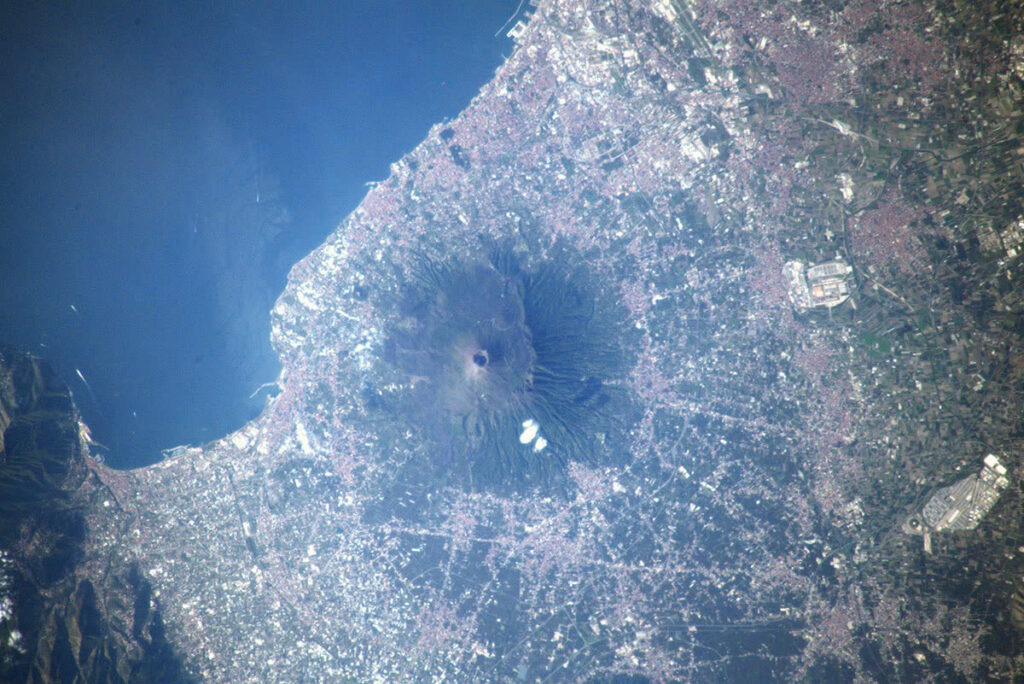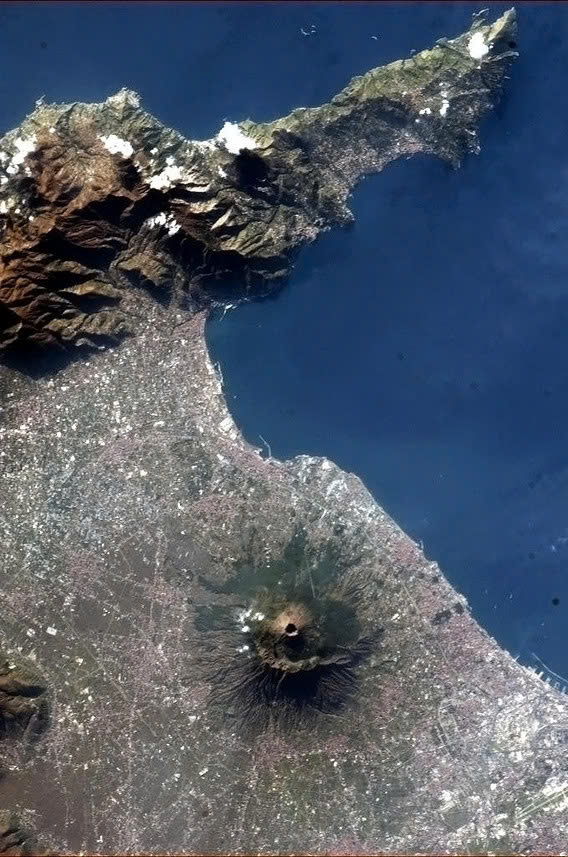Introduction: A Volcanic Masterpiece from Above

In a breathtaking moment of cosmic perspective, astronaut Andreas Mogensen has captured Mount Vesuvius in stunning detail from the International Space Station (ISS) during his Huginn mission. This extraordinary photograph not only showcases the visual magnificence of the iconic Italian volcano but also invites us to explore its profound geological and historical significance.
The Geological Marvel: Understanding Mount Vesuvius
Origins of the Campanian Arc

Mount Vesuvius emerges from the complex geological dance of tectonic plates—specifically, the collision between the African and Eurasian plates. This dramatic interaction has sculpted southern Italy’s landscape, creating incredibly fertile soils enriched with volcanic minerals. These unique conditions have transformed the region into an agricultural paradise, particularly renowned for producing some of the world’s most exquisite tomatoes.
A Dormant Giant with Persistent Power

Despite remaining silent since its last eruption in 1944, Vesuvius stands as an active volcano, its towering crater a powerful reminder of the immense geological forces simmering beneath the Earth’s surface. The nearby Phlegraean Fields further amplify the region’s volcanic vitality, with ongoing seismic activities hinting at the subterranean energy waiting to be unleashed.
A Tragic Historical Legacy
The Catastrophic Eruption of 79 AD

Vesuvius etched its name in historical memory through its apocalyptic eruption in 79 AD, which obliterated the Roman cities of Pompeii and Herculaneum. This sudden cataclysm buried entire urban landscapes under layers of ash and pumice, paradoxically preserving a remarkable archaeological snapshot of Roman civilization. Excavations have since provided unprecedented insights into ancient urban life, culture, and human resilience.
Cosmic Perspective: The ISS Revelation
A View Beyond Imagination

Mogensen’s photograph from the International Space Station offers a transformative perspective, revealing Vesuvius not just as a geographical feature but as a dynamic symbol of Earth’s complexity. The image masterfully illustrates the contrast between the ancient volcano and the contemporary cityscape of Naples, embodying the delicate coexistence of historical legacy and modern existence.
Inspiration and Reflection
From this extraordinary vantage point, Vesuvius transcends its reputation as a destructive force. Instead, it emerges as a testament to the planet’s incredible geological processes and humanity’s capacity to observe, understand, and marvel at natural phenomena.
Conclusion: A Living, Breathing Landmark

Mount Vesuvius continues to captivate our collective imagination—a natural wonder that seamlessly blends geological drama, historical significance, and cultural richness. Through Mogensen’s lens, we are reminded of the profound interconnectedness between human civilization and the powerful, unpredictable forces that shape our world.

